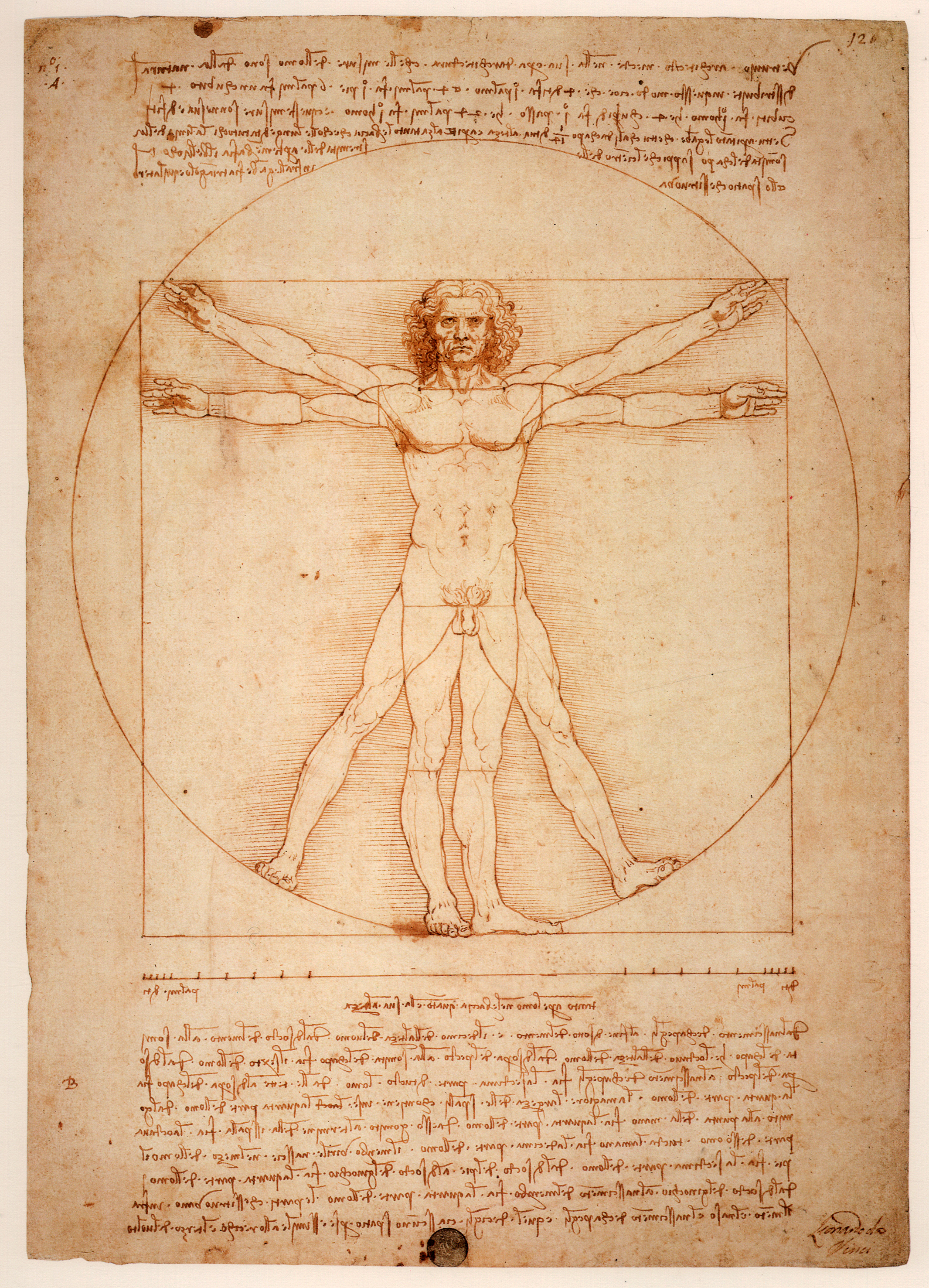Did the Renaissance and Reformation adequately confront Petrarch's dilemma? Did people finally see humans as they did the other wonders of the world? Perhaps even in our day many of us fail to bridge the gap between the wonder of human beings and the wonder of God's other creations, as beautiful as they may be.
In the physical aspect, human beings were definitely seen as more magnificent than previously thought. The artists Michelangelo and Leonardo da Vinci dissected body parts in order to more fully capture the full anatomy of the human body, despite being looked down upon by the Catholic Church.
 But while in the human lies natural beauty, there may be something even more beautiful in the idea that humans, unlike many other things, can change for the better. Humans began to take physical and intellectual endeavors previously not taken. Sailors like Columbus or Vaco da Gama plunged into the unknown in order to find trade routes not previously taken. People began to question their own way of living by looking to the past and seeing the way that the Greeks and Romans lived. Even one's salvation before God was looked upon in a different light as early as the 14th century when John Wycliffe and Lollards began to push for piety. And very important to this revolution of ideas was the increased literacy that spread abroad from the technology of the printing press, as people in somewhat lower classes were able to read about the new thoughts and ideas abroad.
But while in the human lies natural beauty, there may be something even more beautiful in the idea that humans, unlike many other things, can change for the better. Humans began to take physical and intellectual endeavors previously not taken. Sailors like Columbus or Vaco da Gama plunged into the unknown in order to find trade routes not previously taken. People began to question their own way of living by looking to the past and seeing the way that the Greeks and Romans lived. Even one's salvation before God was looked upon in a different light as early as the 14th century when John Wycliffe and Lollards began to push for piety. And very important to this revolution of ideas was the increased literacy that spread abroad from the technology of the printing press, as people in somewhat lower classes were able to read about the new thoughts and ideas abroad.However, while some attempted to push past the boundaries of the current thought of humans, many did not seem to want to jump on board. As recorded in the story of Vaco da Gama, instead of celebration before the start of their journey, men and women were crying and priests were praying. They did not believe that they would see their loved ones again. Erasmus, who was well versed in Latin and often looked to the past, saw Martin Luther and the Reformation as radical. Erasmus was more on the side of the Catholic church, who seemed to put more focus on the ordinances and ornaments rather than looking more inward for salvation.
Today, human achievement is remarkably celebrated, but I still wonder if we see ourselves as Petrarch described. When I have gone to national parks I have seen the awe in people as the contemplate the natural wonders of the world but do we see it in ourselves? I often see people categorized as "crazy" because they are trying to achieve something new, such as a new business idea or pushing past a cultural boundary. In the blog post "Choosing the Difficult Path", Kenneth Lee mentions how John Calvin preached on the idea of suffering persecution. He makes the point that his speech was parallel to his own life, how he was not afraid to take a leap of faith. When dealing with our own goals, we must ask ourselves if we are willing to take the same leap of faith in the ability of human beings like ourselves.
That is an interesting idea that you have presented. I listened to a talk today by Elder Dieter F. Uchtdorf entitled "Lord, is it I?" in which he discusses the fact that most men and women have a skewed perception of themselves. Many people overestimate their abilities and contributions while others seriously underestimate their own potential for divinity. It is an interesting question that I believe people will be asking themselves for years to come.
ReplyDelete